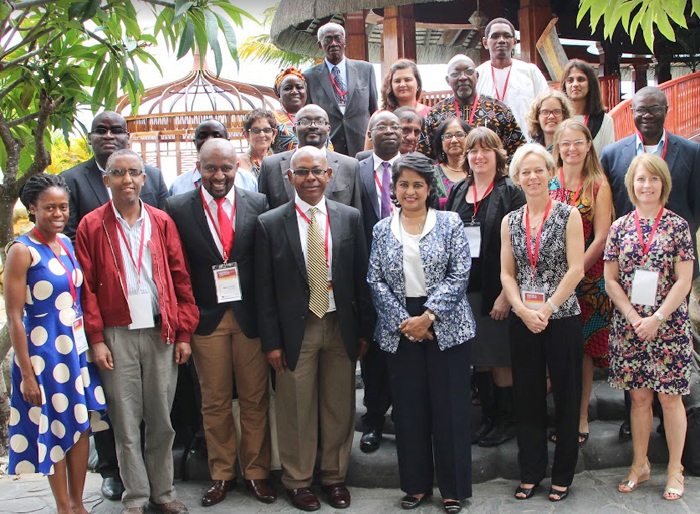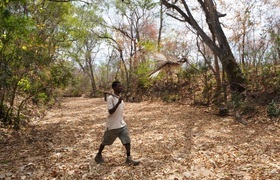Mauritius encourages intra-African research
09 November 2016 | Story Chido Mbambe. Photo Supplied.
H3Africa encourages African scientists to work together through pan-African networks with foreign researchers who will add special skills and technologies as part of the development programme of the research group.
The project consists of 26 studies looking at different diseases by collecting data from genome-wide association studies as well as genome sequencing data from thousands of participants.
Projects funded include chronic and infectious diseases, including TB, cardiovascular disease, psychiatric and neurological disease, viral diseases and podoconiosis, a neglected tropical disease.
UCT has received a number of H3Africa grants, including support for the H3ABioNet bioinformatics network (Professor Nicky Mulder), rheumatic heart disease (Professor Bongani Mayosi), genetics of schizophrenia in the Xhosa population (professors Dan Stein and Raj Ramesar), microbiome in the Drakenstein cohort (professors Heather Zar and Mark Nicol), stigma in African genomics research on schizophrenia and rheumatic heart disease (Dr Jantina de Vries), and ethical and legal issues in sickle cell research (Professor Ambroise Wonkam).
At the recent H3Africa conference, which was held at the end of October 2016, President of Mauritius Dr Ameenah Gurib-Fakim highlighted the role of the H3Africa Initiative on Africa's development.
Dr Gurib-Fakim is an internationally renowned scientist who has been working in the field of biodiversity. She spoke about how the transformation of Africa's resources and the translation of its ancestral knowledge could transform the continent. She also emphasised the importance of empowering the youth with the necessary tools and new knowledge to help the continent advance its developmental challenges.
Dr Gurib-Fakim's message also highlighted the importance of the public being made aware of the impact of the research work being carried out in universities and research centres. Such dialogue will guide the narratives of leaders and invest in research and research infrastructure that will help encourage young talented Africans to stay on the continent to work as opposed to leaving for greener pastures.
To date, research in 29 African countries is funded. The funding has been made available since 2012, with researchers having to meet every six months in a different African country. The current funding agencies, National Institutes of Health (NIH) and the Wellcome Trust, have been heartened by the progress in the H3Africa projects to the extent that they have both put out calls for a further five-year cycle of funding.
Dr Gurib-Fakim emphasised the need for African governments to match donor support to what the H3Africa Initiative is bringing to the continent.
For more information, contact Dr Michelle Skelton, Project Manager in the H3Africa Coordinating Centre.
 This work is licensed under a Creative Commons Attribution-NoDerivatives 4.0 International License.
This work is licensed under a Creative Commons Attribution-NoDerivatives 4.0 International License.
Please view the republishing articles page for more information.










